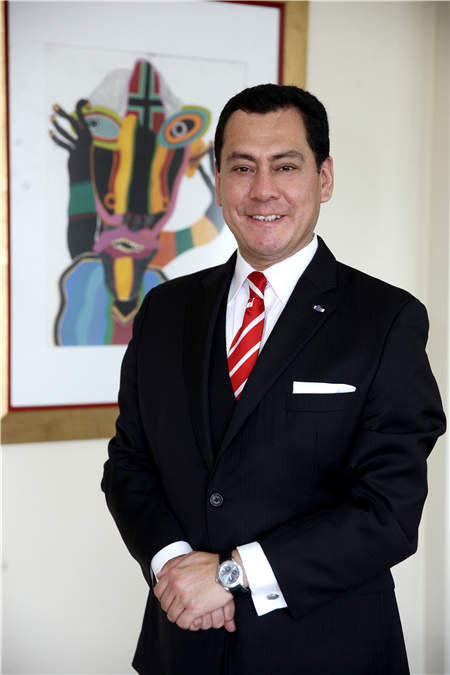Making friends with food
 |
|
[Photo provided to China Daily] |
"In a country like Honduras, where problems of violence are present," he adds, "these activities meant a good opportunity to have a whole community reunited in a peaceful and productive activity".
They also created new opportunities for food fusion, a familiar concept in his own country. Peru's cuisine has evolved and been enhanced over centuries by many influences and immigrants, from indigenous peoples to the Spanish, Africans and Asians. Japanese arrivals, for example, have developed what has become a particular brand of fusion-"Nikkei cuisine"-rooted in the significance both traditions give to fresh fish.
Importantly for Gonzales and his gastro-diplomacy concept, such culinary awareness was readily embraced by his host country.
"It gave the opportunity to Honduras to show its original products coming from different regions of its territory. For example loroco, a Honduran herb used in different traditional plates, has now a different value for the culinary audience in Honduras."
That, says Gonzales, is what gastro-diplomacy is all about. He will be in China in late August to promote the idea at events in Beijing and Yantai, Shandong province.
An important goal has been to demonstrate how valuable it would be for all diplomatic systems of the world to have a full-time culinary attache at every embassy.
"This position should be occupied by a professional chef. One important expectation my team and I had was to promote a gastronomic revolution in Honduras. I really believe that, together with the public and private sector in that country, we have begun such a process.
Enthusiastic private and public support led to establishing the Peru-Honduras Business Council, which in turn helped fuel a push for last year's FTA agreement between the two countries, which will take effect in December.
Gonzales sees another natural partner for cuisine besides diplomacy: Tourism. It's no coincidence that Peru hosted this year's World Forum on Gastronomy Tourism Lima.
"It's part of the new way of focusing the importance of gastronomy and tourism for development," he says.
















